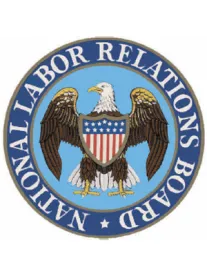Among the National Labor Relations Board’s (NLRB) rulemaking priorities under the National Labor Relations Act (NLRA) are its representation-case procedures, “blocking charge” and voluntary recognition standards, student status as employees, and access to employer private property.
The priorities are included in the Unified Agenda of Federal Regulatory and Deregulatory Actions (Long Term Actions/Short Term Actions), a semiannual compilation of information about regulations under development by federal agencies, published in the spring and fall, that detail the most significant regulatory actions agencies expect to take in the coming year. The Board did not set forth expected rulemaking dates, but short-term actions likely will occur during 2019.
Representation-Case Procedures – Long-Term Action
It appears the Board has its sights squarely set on making substantial changes to the union-friendly amendments made by the Obama-era Board to representation election procedures. In the summary that accompanies this action item, the Board has written: “The . . . NLRB will be revising the representation election regulations located at 29 CFR part 102 (the Election Regulations), with a specific focus on amendments to the Board’s representation case procedures adopted by the Board’s final rule published on December 15, 2014 (the Election Rule or Rule).” (Emphasis added.) Those amendments have been effective since April 14, 2015. They allow union organizing to move at an accelerated pace by, among other things, significantly reducing the time between the filing of a representation petition and the election from an average of approximately six weeks to an average of 23 days. Other provisions create substantial burdens on employers by requiring, within seven days, submission of a Statement of Position addressing all potential bargaining unit issues, the provision of copious amounts of information regarding potential voters, and deferring critical election issues, such as supervisory status issues, until after the election is held. The conventional wisdom is that the NLRB will make employer-friendly changes to the procedures.
Blocking Charges and Voluntary Recognition – Short-Term Action
The Board has carved out items from its representation-case procedures review and included them in its short-term action list. The Board expects to reconsider the standards for blocking charges and the voluntary recognition bar.
The Board’s current practice is to suspend the processing of an NLRB representation petition if a “blocking charge” is filed by the union. (A “blocking charge” is an unfair labor practice charge alleging unlawful conduct which, if true, might interfere with employees’ ability to make a free and uncoerced choice of representative.) In rulemaking, the Board could eliminate blocking charges altogether.
The NLRB’s “voluntary recognition bar” policy requires workers to wait at least six months before seeking to oust a union that had been voluntarily recognized as their bargaining representative (as opposed to having been selected by a majority of the employees voting in an NLRB representation election). In rulemaking, the Board could shorten the bar to less than six months.
Students as Employees – Short Term Action
The NLRB also will consider rulemaking regarding the standard for determining whether students who perform services at private colleges or universities in connection with their studies are “employees” within the meaning of Section 2(3) of the National Labor Relations Act (29 U.S.C. Sec. 153(3)).
Access to Employer Private Property – Short-Term Action
The NLRB will consider rulemaking regarding the standards for access to an employer’s private property. Conflicts between employer property rights and federal labor law have long been complicated and controversial, often leading to litigation. The case law in this area can be complex and interpretations of the NLRA by the Board have been subject to change. To provide clarity, the NLRB will consider rulemaking about the standards for access (by employees and unions) to an employer’s private property.
Access rules also have been front and center for change on the agenda of the NLRB’s General Counsel, Peter Robb. Robb directed the NLRB’s Regional Directors to submit to his Division of Advice unfair labor practice cases filed in the Regional Offices related to “off-duty employee access to property.” (See “Mandatory Submissions to Advice” Memorandum GC 18-02.) The Memorandum included examples of NLRB decisions and situations when the GC was interested in potentially asking the NLRB to change existing case law. Two of those decisions were Capital Medical Center, 364 NLRB No. 69 (2016), and Piedmont Gardens, 360 NLRB No. 100 (2014).
Joint Employer – Long-Term Action
In addition to the priorities included in the unified agenda, the NLRB also is in the process of rulemaking on the joint employer issue. The NLRB Notice of Proposed Rulemaking (NPRM) regarding the standard for determining joint employers received more than 7,000 comments. (See our article, Labor Board Seeks Public Comments on Proposed Rule for Determining Joint-Employer Status.) They are now being reviewed by a contractor hired by the NLRB to categorize the comments. No timetable has been set for issuance of the rule.
***
The NLRB’s published agenda is ambitious and significant. According to Chairman John F. Ring, the Board majority has a strong interest in continued rulemaking and “addressing these important topics through rulemaking allows the Board to consider and issue guidance in a clear and more comprehensive manner.”






 />i
/>i

